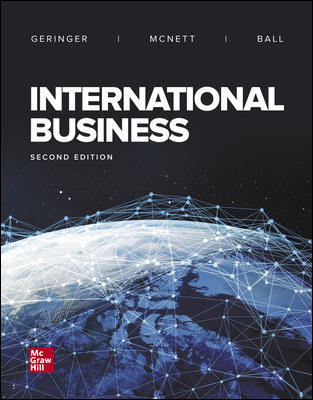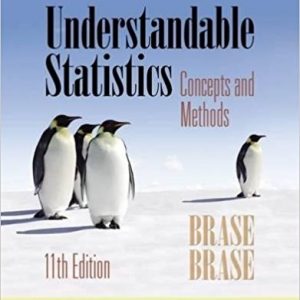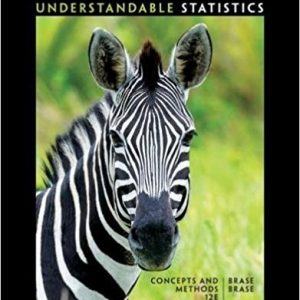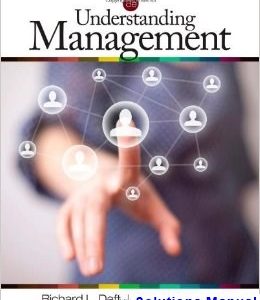Instant download Solution Manual for International Business, 2nd Edition, Michael Geringer, Jeanne McNett, Donald Ball pdf docx epub after payment.

Product details:
- ISBN-10 : 1259685225
- ISBN-13 : 978-1259685224
- Author: Geringer
Empower students to develop their global mindset! Up-to-date, relevant and engaging, Geringer: International Business 2e provides a flexible, modular format for instructors along with student-focused features that make the study of IB personally relevant for every student!
Table Of Contents:
- Module 1: The Challenging Context of International Business
- What Is International Business and What Is Different about It?
- The Influence of External and Internal Environmental Forces
- The Domestic Environment
- The Foreign Environment
- The International Environment
- Is Internationalization of Business a New Trend, and Will It Continue?
- The Growth of International Firms and International Business
- Expanding Number of International Companies
- Foreign Direct Investment and Exporting Are Growing Rapidly
- What Is Driving the Internationalization of Business?
- Political Drivers
- Technological Drivers
- Market Drivers
- Cost Drivers
- Competitive Drivers
- What Are the Arguments for and against the Globalization of Business?
- Concerns with Globalization
- Arguments Supporting Globalization
- Summary
- Key Terms
- Critical Thinking Questions
- Research Task
- Minicase
- Notes
- Module 2: International Trade and Investment
- International Trade
- Volume of International Trade
- How Evenly Has Trade Grown?
- Which Nations Account for the Most Exports and Imports?
- Direction of Trade
- The Increasing Regionalization of Trade
- Major Trading Partners: Their Relevance for Managers
- Major Trading Partners of the United States
- Explaining Trade: International Trade Theories
- Mercantilism
- Theory of Absolute Advantage
- Theory of Comparative Advantage
- How Exchange Rates Can Change the Direction of Trade
- Some Newer Explanations for the Direction of Trade
- Summary of International Trade Theory
- Foreign Investment
- Portfolio Investment
- Foreign Direct Investment (FDI)
- Does Trade Lead to FDI?
- Explaining FDI: Theories of International Investment
- Monopolistic Advantage Theory
- Strategic Behavior Theory
- Internalization Theory
- Dynamic Capabilities Theory
- Eclectic Theory of International Production
- Summary
- Key Terms
- Critical Thinking Questions
- Research Task
- Minicase
- Notes
- Module 3: Sociocultural Forces
- What Is Culture and Why Is It Important?
- Culture Affects All Business Functions
- Marketing
- Human Resources
- Production and Procurement
- Accounting and Finance
- Preferred Leadership Styles
- How Culture Shows Itself
- Aesthetics
- Religion
- Material Culture
- Language
- Societal Organization
- Special Focus: Gift Giving in Business
- Culture Frameworks
- Hall’s High and Low Context
- Kluckhohn and Strodtbeck’s Cultural Orientations Framework
- Hofstede’s Six Dimensions
- Trompenaars’s Seven Dimensions
- When Does Culture Matter? The Global Mind-Set
- Going Forward: Cultural Paradoxes and a Caution
- Rules of Thumb for Managers Doing Business across Cultures
- Summary
- Key Terms
- Critical Thinking Questions
- Research Task
- Minicase
- Notes
- Module 4: Sustainability and Natural Resources
- Sustainability in the Business Context
- Systems for Achieving Sustainability
- Life Cycle Assessment
- Cradle-to-Cradle Design
- Tools for Measuring Sustainability
- United Nations Global Compact
- Global Reporting Initiative
- Carbon Disclosure Project
- Footprinting
- Characteristics of Environmentally Sustainable Business
- Limits as Part of the Sustainability Context
- Interdependence as Part of the Sustainability Context
- Equity in Distribution as Part of the Sustainability Context





